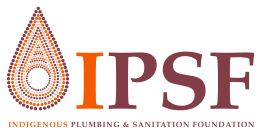The Challenges
Background.
If we judge a society by how it treats its most vulnerable, then Australia’s report card is well below average. Poverty in Australia is as harsh as it is in developing countries, and it’s Aboriginal and Torres Strait Islander people, over half a million Australians, who are among the most disadvantaged.
Statistics show that the Aboriginal population living in remote rural areas, experience significantly higher rates of chronic diseases such as cardiovascular disease and diabetes; foetal alcohol spectrum disorders; incarceration; substance abuse; and suicide. As a consequence, the median Aboriginal male in the region dies up to 30 years earlier than his non-Aboriginal counterpart.
While Aboriginal wellbeing has improved over the last decade, the disadvantage experienced by many Aboriginal families in the region remains unacceptable. With 55% of the Aboriginal population in the region aged under 25 years, it is critical that more effective action is taken now to improve Aboriginal wellbeing.
This is particularly evident in remote communities where people are disadvantaged by their distance from health care, education and employment opportunities.
The health of Aboriginal and Torres Strait Islander people in Australia is a major concern, with life expectancies more than ten years below those of non-Indigenous Australians.
This is largely due to the fact that Aboriginal and Torres Strait Islander people are proportionately over-represented in rural and remote Australia compared to non-Indigenous Australians .The health of Indigenous Australians declines as their remoteness increases.
Addressing the challenges of remote Indigenous communities
Improving the health and sanitation of Indigenous Australians in remote communities has been a long-standing challenge.
Unfortunately the reality for many self-administered remote Indigenous communities is that they face acute challenges in maintaining proper sanitation and clean water. This is largely due to the lack of available and skilled tradespeople, with the end result being that basic sanitation needs suffer as a result.
We believe plumbing is at the front-line of defence against disease and promoting better health in Indigenous communities.
